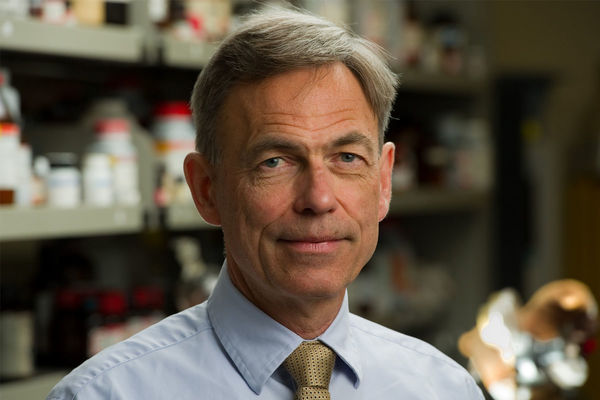
For decades, professor Paul Helquist has partnered with colleagues in Sweden to send undergraduate and graduate chemistry students to each others’ laboratories—around 50 in total—to perform research at Notre Dame, the University of Stockholm, Gothenburg University, the Royal Institute of Technology in Stockholm as well as the Astra Zeneca pharmaceutical lab near Gothenburg. Students from Notre Dame obtain valuable experience working in an international lab in a country which has a long-standing, strong program in science and engineering, particularly chemistry. Research in Sweden is conducted in English, making it easier for American students to acclimate in a foreign country, but Helquist offers two lessons a week on conversational Swedish for those interested in learning some of the language to boost their cultural experience.
Since summer 2014, Helquist has received grant funding through the National Science Foundation International Research Experience for Students (NSF-IRES) program. The grant was recently authorized for a fourth year for summer 2017. Each summer, three students spend three to four months at one of the partner institutions performing fulltime research with their mentors. Research typically happens within the fields of organic chemistry, biochemistry, theoretical chemistry and the addition of physical chemistry this year.
For past participants, the program can encourage students to pursue new research interests. “One way to gain knowledge about a new field is to read about it; however, being part of this program allowed me to actively conduct research with world-leading experts in a field that I likely would not have ventured into at Notre Dame,” said Michael Grigalunas, a 2014 participant and Ph.D. candidate whose research today involves creating treatments for Niemann-Pick type C disease.
Not only does the program affect research pursuits, but the program can also have significant effects on students’ career trajectories. This was the case for Richard Connell ’89, who participated in the program long before it was NSF-funded. “I recognized that doing successful research in any country comes down to good facilities, a good project and a good boss. I had all three in Stockholm,” Connell said. Since his time at Notre Dame, Connell has worked for pharmaceutical giants Bayer and Pfizer and has had assignments abroad in Germany, the United Kingdom and China. “Had I not taken the ‘baby step’ of a six-month assignment in Stockholm, it is unlikely I would have had such success in these far-flung locations throughout my career,” Connell said.
Overall, Helquist’s program offers students a chance for great personal growth as students and individuals. “As an individual, spending four months in Sweden gave me an opportunity to be immersed in a new culture and enjoy the experiences of a new environment. As a student, I was able to challenge myself as a scientist by acclimating to a new lab, project and academic setting,” Grigalunas said. “Responding to these challenges has undoubtedly been a crucial learning experience in my graduate school career.”
Originally published by at science.nd.edu on February 06, 2017.
